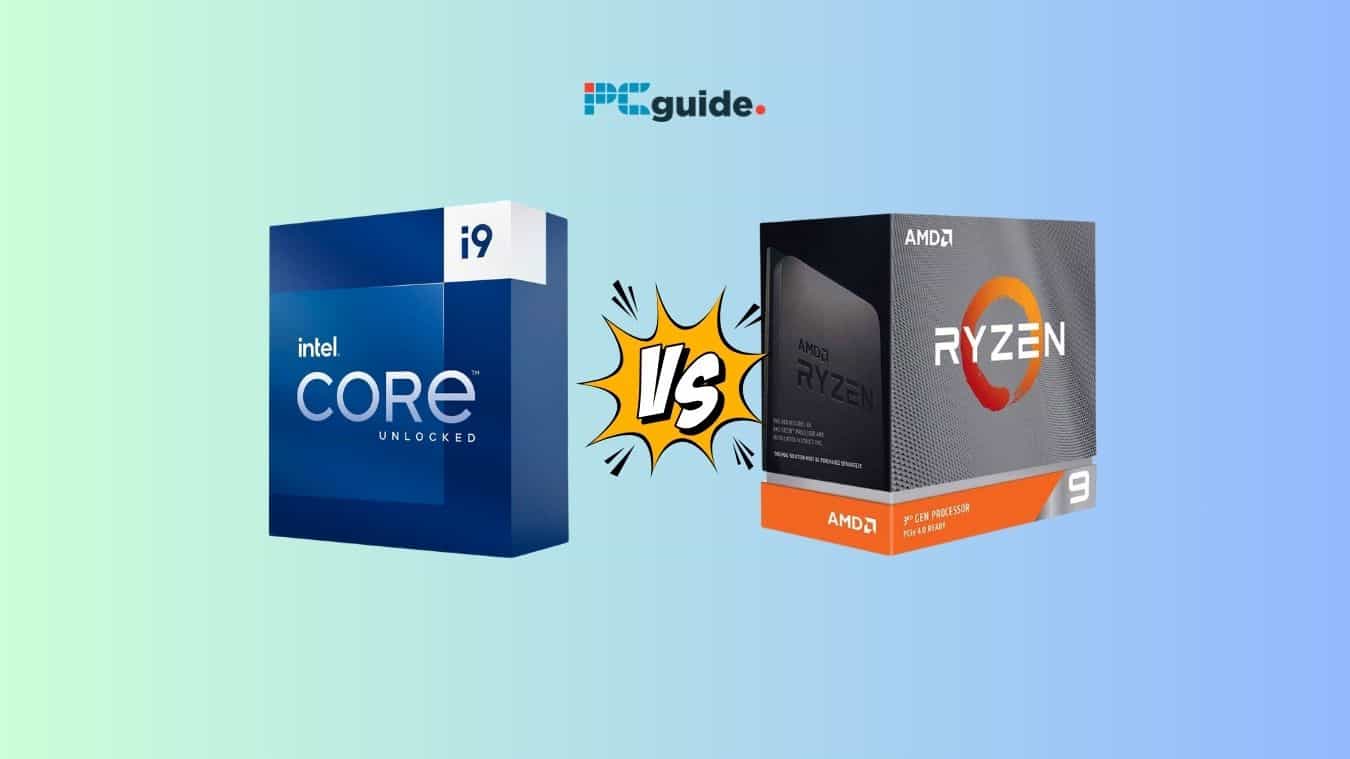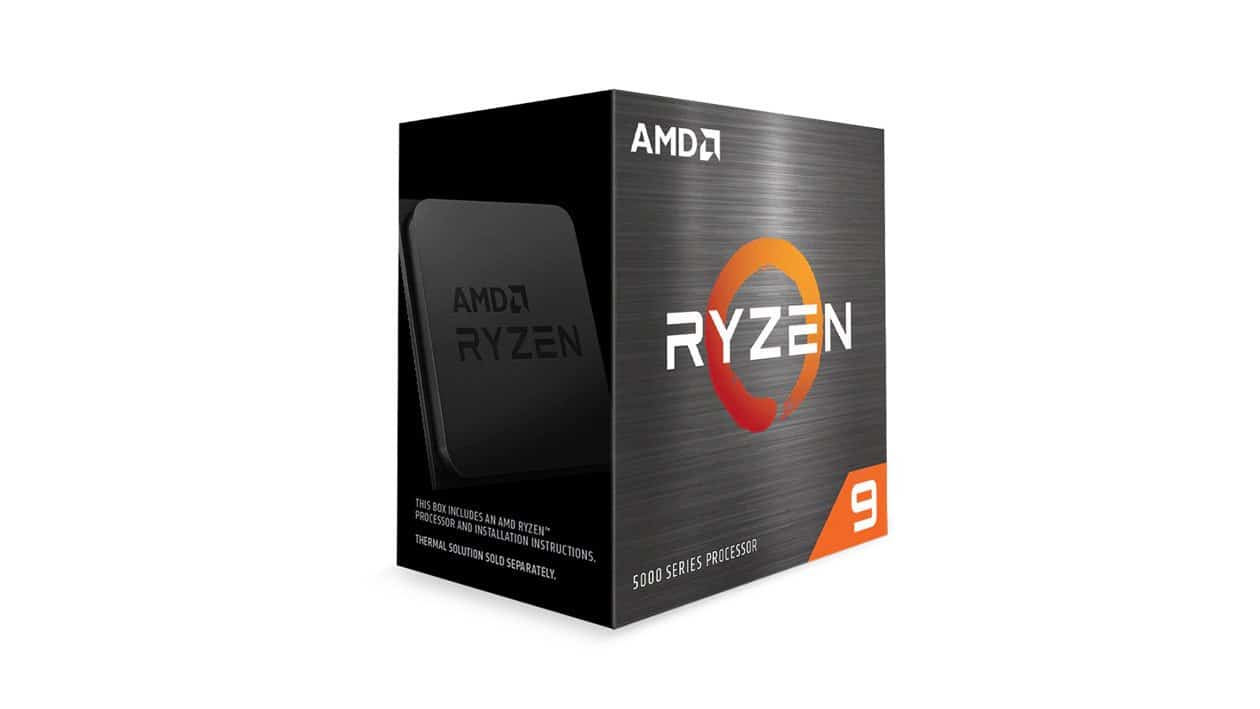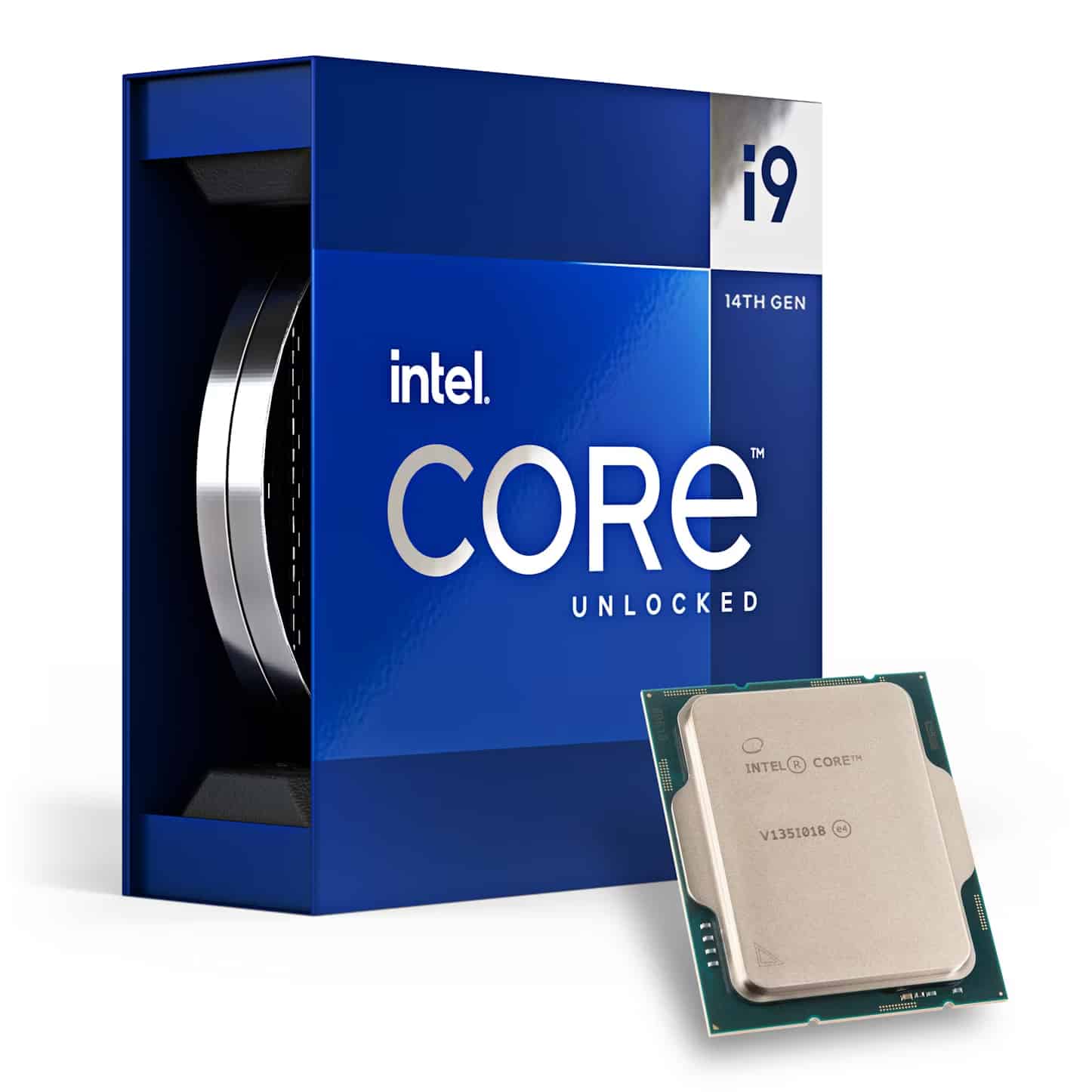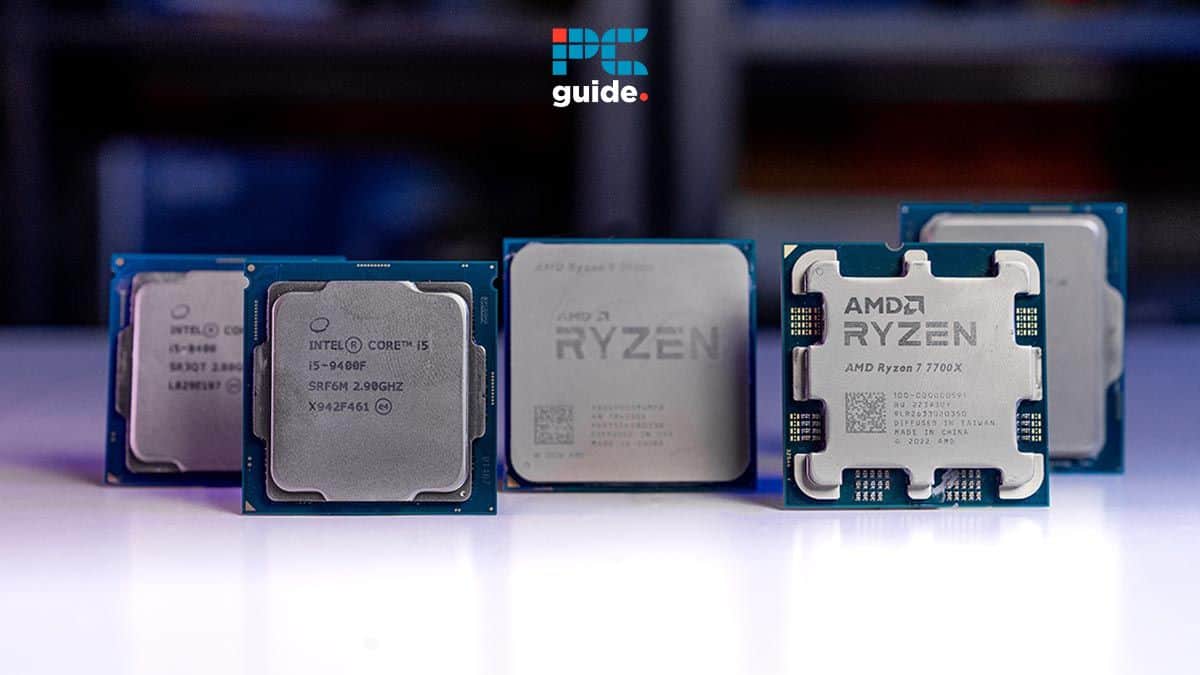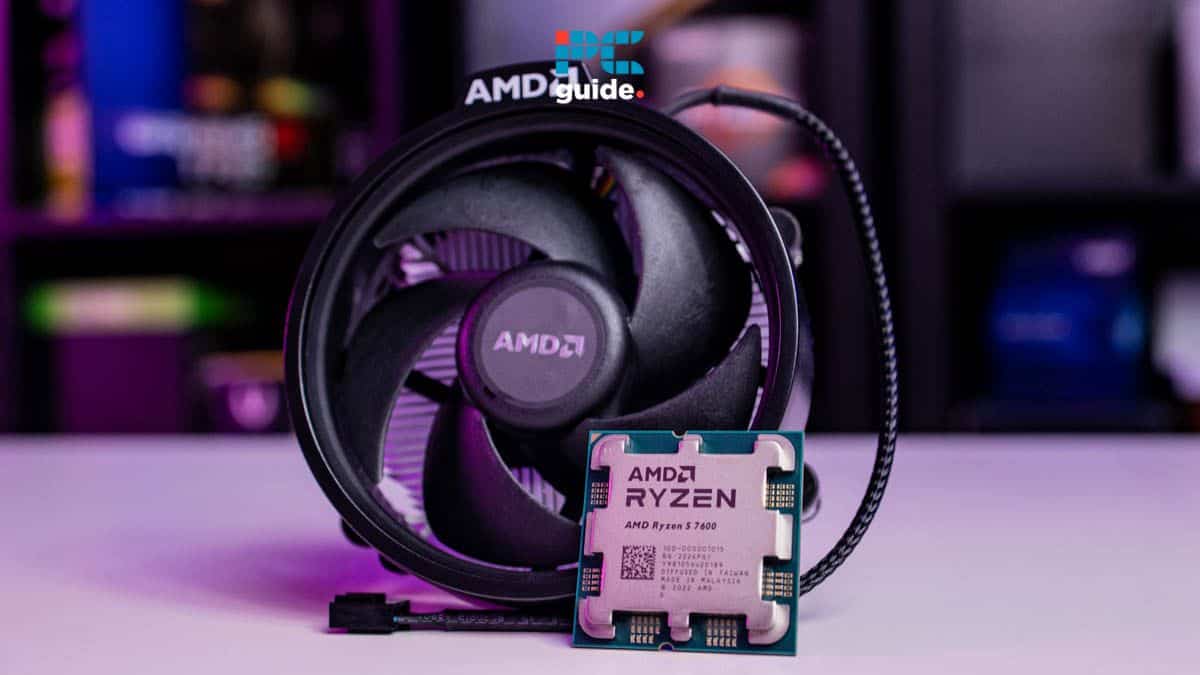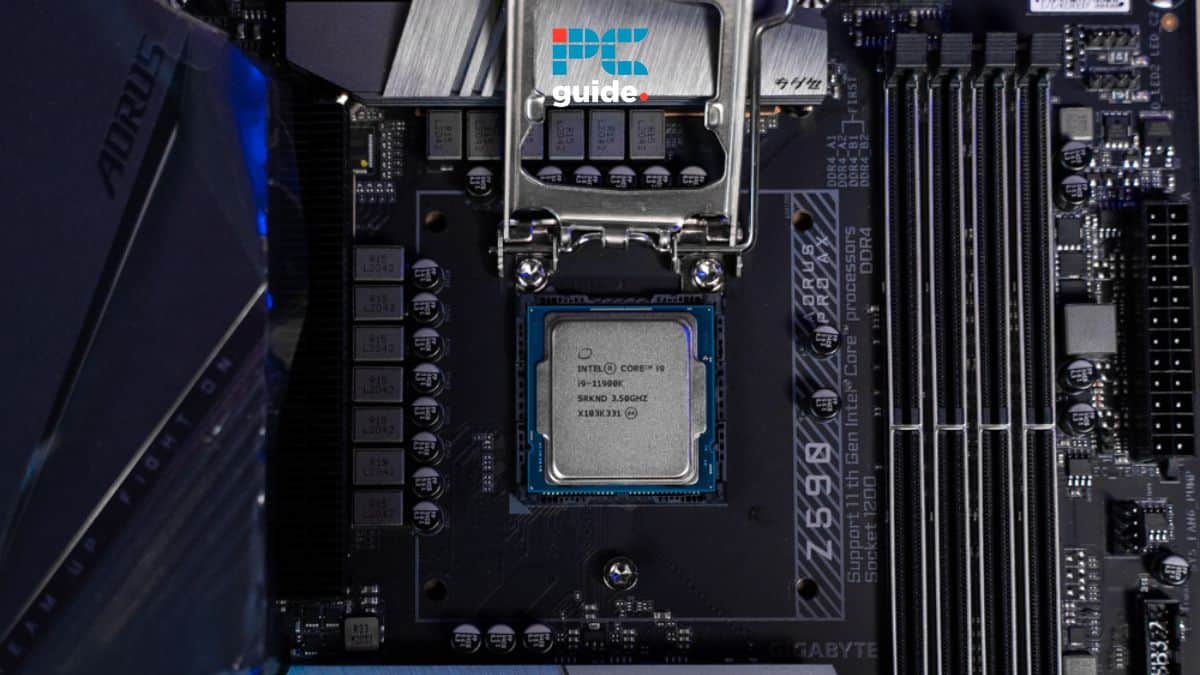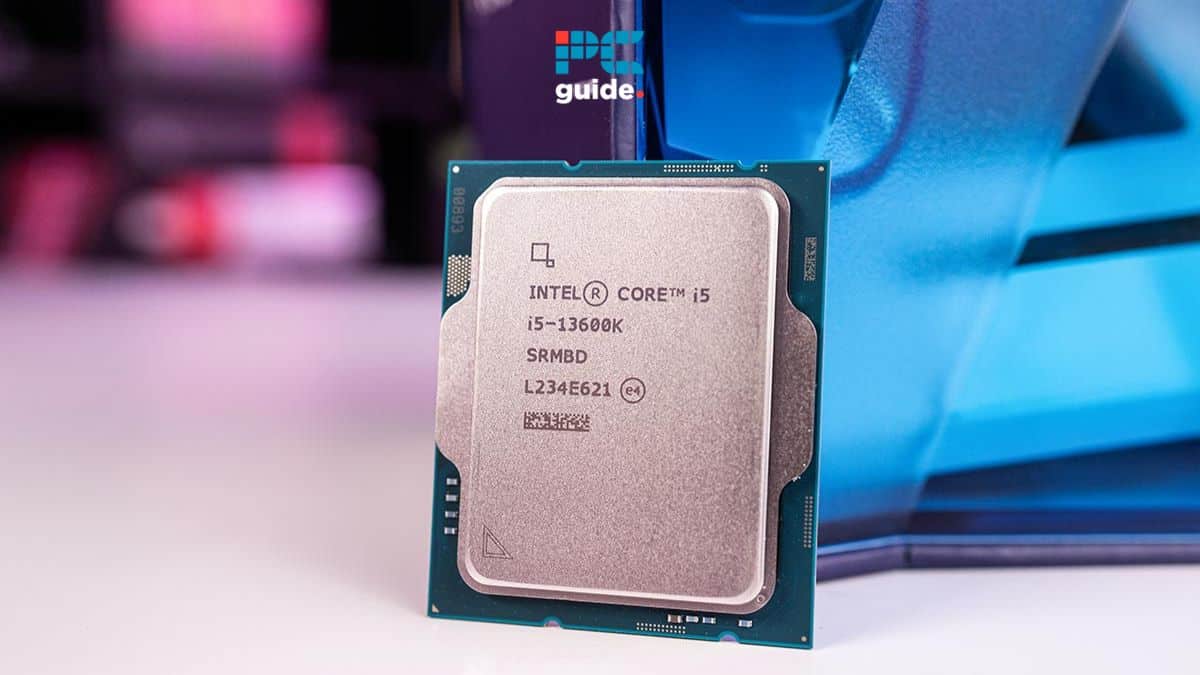The Intel Core i9 14900KS is here and PC enthusiasts eagerly await how the CPU holds up against some popular ones available in the market. Today, we will compare the Intel Core i9 14900KS vs. Ryzen 9 5900X to find how AMD’s CPU fares against the speculated Core i9-14900KS.
Intel Core i9 14900KS vs. Ryzen 9 5900X: Specs comparison
When analyzing the Intel Core i9 14900KS alongside the Ryzen 9 5900X, we delve into a CPU comparison that pits Intel’s cutting-edge innovation against AMD’s established prowess. Here’s a deeper look at how these processors might stack up in terms of specifications and capabilities.
Core architecture and performance
The Core i9-14900KS, built on a 10nm process, showcases Intel’s leap toward optimizing thermal management and efficiency. It features a total of 24 cores and 32 threads, utilizing a hybrid architecture that combines eight high-performance cores with 16 efficiency cores. This design aims to deliver superior multi-threaded performance, particularly in applications that can leverage parallel processing effectively.
In comparison, the Ryzen 9 5900X employs a 7nm process and offers 12 cores and 24 threads. While it presents fewer physical cores than the Core i9-14900KS, it still delivers robust performance, especially in multi-threaded tasks, due to its high bandwidth capabilities and efficient use of cache memory.
Clock speeds and overclocking potential
The Core i9-14900KS’s base frequency stands at 3.2 GHz, with an astounding boost frequency of up to 6.2 GHz. This suggests a potentially significant advantage in single-core performance, which is crucial for gaming and certain computational tasks. The Ryzen 9 5900X, while having a higher base frequency of 3.7 GHz, peaks at a boost frequency of 4.8 GHz, indicating that the Core i9 might offer faster responsiveness and frame generation in demanding applications.
Graphics and expansion
Intel’s inclusion of Intel UHD Graphics in the Core i9-14900KS provides an integrated GPU (iGPU) solution, facilitating basic graphical tasks and supporting displays without necessitating a discrete GPU. The Ryzen 9 5900X, however, lacks an iGPU, relying entirely on external GPUs for graphical output.
Both CPUs support advanced PCIe versions, enhancing their compatibility with a wide range of GPUs and NVMe SSDs for improved data transfer speeds and system responsiveness. This bandwidth proficiency is essential for systems that aim to maximize their overclocking capabilities and overall performance.
Cache and encryption
Cache size differences between the two processors could impact their efficiency in data retrieval and latency reduction, with the Core i9-14900KS featuring larger L1, L2, and L3 caches. Additionally, both CPUs support AES-NI for secure data encryption, ensuring that security does not compromise performance.
Specs comparison table
| Specification | Intel Core i9 14900KS | Ryzen 9 5900X |
|---|---|---|
| Process | 10nm | 7nm |
| Cores/Threads | 8/16 | 12/24 |
| Base/Boost Frequency | 3.2 GHz / 6.2 GHz | 3.7 GHz / 4.8 GHz |
| Integrated Graphics | UHD Graphics 770 | None |
| PCIe Version | PCIe 5.0 | PCIe 4.0 |
| L1, L2, L3 Cache | Larger overall cache | 768 KB L1, 6 MB L2, 64 MB L3 |
| Overclocking | Expected to support | Supported |
| AES-NI | Supported | Supported |
| TDP | 150W | 105W |
Intel Core i9 14900KS vs. Ryzen 9 5900X: Performance
When dissecting the performance showdown between the Intel Core i9 14900KS and the Ryzen 9 5900X, each CPU brings its own set of strengths to the table, targeting enthusiasts and power users with their high-end capabilities. Here’s a closer examination of how their key specifications might influence performance in various applications.
Multithreaded workloads and cache efficiency
Intel’s Core i9 14900KS: With an impressive lineup of 24 CPU cores and 32 threads, the Core i9-14900KS is poised to deliver outstanding performance in multithreaded applications. This advantage is particularly noticeable in video rendering, content creation, and heavy multitasking scenarios where the working speed of a processor and the ability to handle parallel tasks efficiently are crucial. Additionally, its larger L2 and L3 caches are expected to significantly reduce latency and boost in-game FPS, benefiting both gamers and professionals working with data-intensive applications.
Ryzen 9 5900X: Despite having 12 cores and 24 threads, the Ryzen 9 5900X remains a formidable contender in the high-end CPU market. Its strength lies in its maximum memory bandwidth and hardware codec support, including HEVC and advanced video codecs, ensuring smooth video playback and efficient content creation workflows. The Ryzen’s dual channel memory support further enhances its ability to manage GB of memory effectively, maintaining high performance across various devices and applications.
Power efficiency and speed
The power consumption of these CPUs is another vital aspect to consider. While the Ryzen 9 5900X is known for its balanced power efficiency, the Core i9-14900KS’s turbo boost technology could push its CPU speed to new heights, albeit potentially at the cost of higher power usage. Users prioritizing energy-efficient systems may lean towards the Ryzen for its optimized performance per watt.
Gaming and GPU compatibility
For gaming enthusiasts, the in-game FPS and compatibility with the latest GPU generation play significant roles in the overall gaming experience. Both processors are designed to work seamlessly with modern GPUs, offering support for the latest DirectX version and ensuring high frame rates in demanding games. The Core i9-14900KS’s higher core count and cache size might provide a slight edge in newer titles optimized for multithreading and Linux environments.
Beyond benchmarks
- Memory: Both CPUs support modern DDR5 RAM. Speed, amount (GB of memory), and whether you’re running single vs. dual channel will impact system performance. Motherboard choice is also important for compatibility.
- PCIe and Storage: The i9-14900KS could have more robust PCIe support for the latest storage devices and graphics cards.
- Software Optimization: Games and applications can be optimized for Intel or AMD CPUs, impacting in-game FPS and program speed.
- Cooling and Power: The i9-14900KS will likely need a more powerful cooler than the Ryzen 9 5900X due to its higher TDP. This impacts both the maximum sustained performance and noise levels.
Performance comparison table
| Specification | Core i9-14900KS | Ryzen 9 5900X | Notes |
|---|---|---|---|
| Performance Cores (P-Cores) | 8 | 12 | Ryzen 9 5900X likely has faster cores overall |
| Efficiency Cores (E-Cores) | 16 | 0 | i9-14900KS wins for multi-tasking |
| Base Clock Speed | 3.2 GHz | 3.7 GHz | Ryzen 9 5900X has the advantage here |
| Max Turbo Frequency | 6.2 GHz | 4.8 GHz | i9-14900KS likely offers better single-core boost |
| TDP | 150W | 105W | Ryzen 9 5900X may be more energy-efficient |
Intel Core i9 14900KS vs. Ryzen 9 5900X: Price and value
When comparing the Intel Core i9 14900KS with the Ryzen 9 5900X, the discussion of price versus performance becomes paramount. Each processor’s value proposition hinges not only on its technical specifications but also on how these capabilities translate into real-world applications, considering the cost.
Assessing value propositions
Intel Core i9 14900KS: With a price of $689, the Core i9 14900KS is positioned as a premium offering in Intel’s CPU lineup. Its impressive technical details, such as the number of CPU cores, GPU memory bandwidth, and thermal design power, suggest it aims to be one of the best upgrade options for power users and enthusiasts seeking the pinnacle of performance. However, its value for money will be scrutinized, especially in comparison to its AMD counterpart. The release date in Q4 further adds anticipation, affecting the decision-making of potential upgraders.
AMD Ryzen 9 5900X: Priced below $300, the Ryzen 9 5900X presents a compelling value proposition for users looking to balance cost with high-end performance. Despite being an older model, its competitive avg frame rates in gaming and robust multi-threaded capabilities make it an attractive option for those seeking performance without breaking the bank.
Performance vs. Price
The choice between these CPUs extends beyond mere technical details; it involves a careful consideration of money spent versus the value received. Users must weigh the cutting-edge performance and thermal design power efficiency of the Core i9 14900KS against the established reliability and cost-effectiveness of the Ryzen 9 5900X.
Final verdict
The Core i9-14900KS and the Ryzen 9 5900X represent some of the best CPU options for demanding users. Intel’s chip will offer a significant lead in multi-core tasks like video editing and 3D rendering. The Ryzen 9 5900X, while slightly older, remains a powerful option, especially for gamers seeking strong single-thread performance and a compelling price point.
Here’s a quick breakdown to help you decide:
- Need Maximum Multi-Core Power? If so, the Core i9-14900KS might be worth the higher price tag.
- Gaming and Everyday Power on a Budget? The Ryzen 9 5900X likely offers a better price-to-performance ratio.
- Do You Crave the Latest Tech? The i9-14900KS, being a newer CPU, will support the latest PCIe lanes and potentially have better memory features.
Keep in mind that specific games and software can be optimized for either Intel or AMD processors, so raw technical specs don’t always tell the whole story. Finally, factor in the motherboard compatibility and any potential cooler upgrades you might need when calculating the total cost of ownership for each CPU option.

